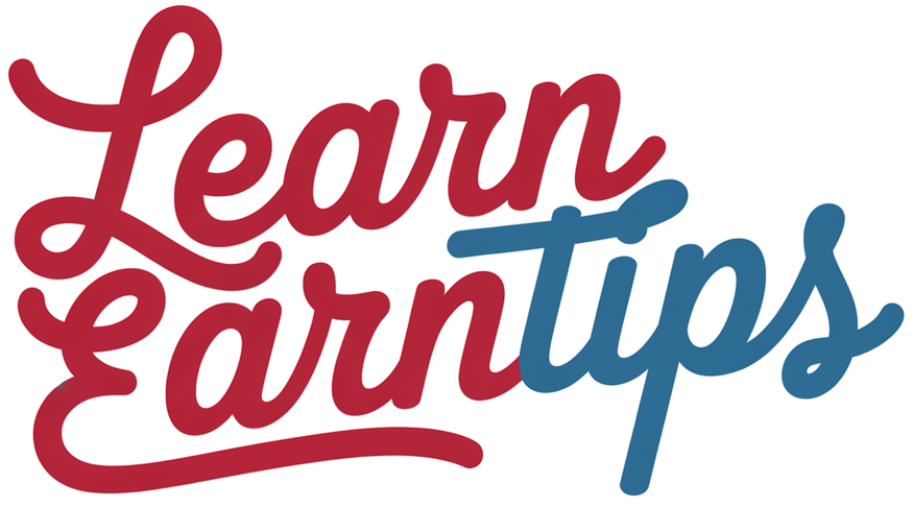How to Earn Money Online Writing Articles as a Beginner
Have you ever dreamed of making money from the comfort of your couch—just you, your laptop, and a good cup of coffee? If writing is something you enjoy, there’s good news: you can turn that passion into a paycheck. And no, you don’t need to be the next Shakespeare to get started.
Let’s walk through exactly how beginners can make money writing articles online—even if you have zero experience.
Why Writing Articles Online Is a Great Side Hustle
If you’re looking for a way to earn money online with minimal start-up costs, freelance writing is a solid option. Here’s why:
- Low Barrier to Entry: All you need is an internet connection and basic writing skills.
- Flexible Schedule: You can write anytime, anywhere—it’s perfect for students, stay-at-home parents, or anyone juggling a 9-to-5.
- Endless Opportunities: Thousands of websites and companies need regular content. That means there’s room for everyone.
And don’t worry—many successful freelance writers started with no experience at all.
Step 1: Choose Your Niche (Even If It’s Temporary)
When you’re just getting started, picking a niche can help you attract the right clients. Don’t know what niche to choose? Think about topics you already know or enjoy talking about.
Here are a few questions to guide you:
- What hobbies or interests do you have?
- Have you had jobs or life experiences others might find valuable?
- Is there something you’re curious to learn more about?
Maybe you love cooking, or maybe you’re deep into personal finance tips. That’s your starting point.
But don’t stress—your niche can evolve over time. In fact, many new writers experiment with a few before settling on one that clicks.
Step 2: Start Practicing—But Don’t Wait for Perfection
One of the biggest mistakes new writers make is waiting until they feel “ready.” Truth is, the best way to improve your writing is by… well, writing.
Try these beginner-friendly platforms to publish your work and gain experience:
- Medium: This platform allows anyone to write and can help you get quick feedback on your style.
- LinkedIn: Yes, it’s for professionals, but it’s also great for sharing article-style posts and building your online presence.
- Personal Blog: Starting your own blog is easy with platforms like WordPress or Wix. It also acts as your online portfolio.
You don’t need a fancy website or professional headshot. You just need to start writing—and keep at it.
Step 3: Build a Writing Portfolio
Before clients can trust you with their writing projects, they’ll want to see samples of your work. Your portfolio doesn’t need to be massive. Even 3–5 strong articles are enough to show off your skills.
Here are a few tips for a beginner-friendly portfolio:
- Choose Articles That Reflect Your Style & Niche: Clients want to see your personality and tone.
- Use Free Publishing Platforms: Medium, Blogger, or even Google Docs (shared as links) can work until you own a website.
- Keep It Simple: No need for complicated layout—just clean, easy-to-read writing samples.
Think of your portfolio like your writing resume. Make sure it reflects your best work.
Step 4: Find Paying Clients
Now the question you’re probably wondering: How do I actually find writing gigs that pay?
There are a few tried-and-true ways to start making money:
1. Freelancing Platforms
Sites like Fiverr, Upwork, and Freelancer are easy places to get started. They connect you directly with people looking for writers.
Tips:
- Start with small projects to gain reviews.
- Keep your profile clear and focused.
- Use a friendly, professional tone in proposals.
2. Cold Pitching
Sound scary? It’s not. Cold pitching is simply reaching out to businesses or websites that could use your writing services.
Here’s how:
- Find a site or small business with a blog that hasn’t been updated in months.
- Send a friendly email introducing yourself and offering to help with content.
- Link to your portfolio and mention how your work could support their goals.
Cold pitching takes a bit more effort—but it’s also where you can find better pay and long-term clients.
3. Job Boards
Some websites compile freelance writing jobs daily. These are handy because they often list paid gigs only.
Check out:
- ProBlogger
- Freelance Writing Gigs
- WriterAccess
Make a habit of checking these every few days. The early bird often gets the job!
Step 5: Improve Your Skills (But Don’t Obsess Over It)
As a writer, there’s always room to grow—and you don’t need to spend tons of money on courses. Some of the best learning comes from doing.
Still, if you want to sharpen your skills, here are free or low-cost options:
- YouTube & Blogs: Tons of writers share tips on technique, productivity, and getting clients.
- Books: “On Writing” by Stephen King and “Everybody Writes” by Ann Handley are great starting points.
- Feedback: Ask other writers to critique your work, or even join writing communities like Reddit’s r/freelanceWriters.
The key? Keep writing—and keep learning. Don’t let perfection stop your progress.
Step 6: Set Realistic Income Goals
Can you *really* make money freelance writing?
Absolutely! But as with any career, it takes time to grow. In the beginning, you might earn $10–$30 per article. Over time, as your portfolio and experience build, you can charge $100, $200, or even more.
The trick is consistency. Many successful writers started by writing one article a week. Over months, that built into a successful side hustle—or even a full-time income.
Final Thoughts
Writing articles online isn’t just a dream job reserved for experts and English majors. It’s open to anyone with a passion for words and the willingness to learn.
So, what’s stopping you?
Open a blank doc. Write about something you care about. Hit “publish.” Do it again. And again. Bit by bit, your writing muscles will grow—and so will your income.
You’ve got this.
Let’s Recap: The Beginner’s Path to Earning Money Writing Online
- Pick a niche that fits your interests.
- Start writing on free platforms to practice.
- Create a simple portfolio to showcase your work.
- Look for clients on freelancing sites, job boards, or via cold pitching.
- Keep improving your skills every week.
Remember: Every successful freelance writer started somewhere. Today, that “somewhere” could be you.
If you liked this post and want more writing tips for beginners, leave a comment or share it with a friend just getting started.
Happy writing! ✍️




